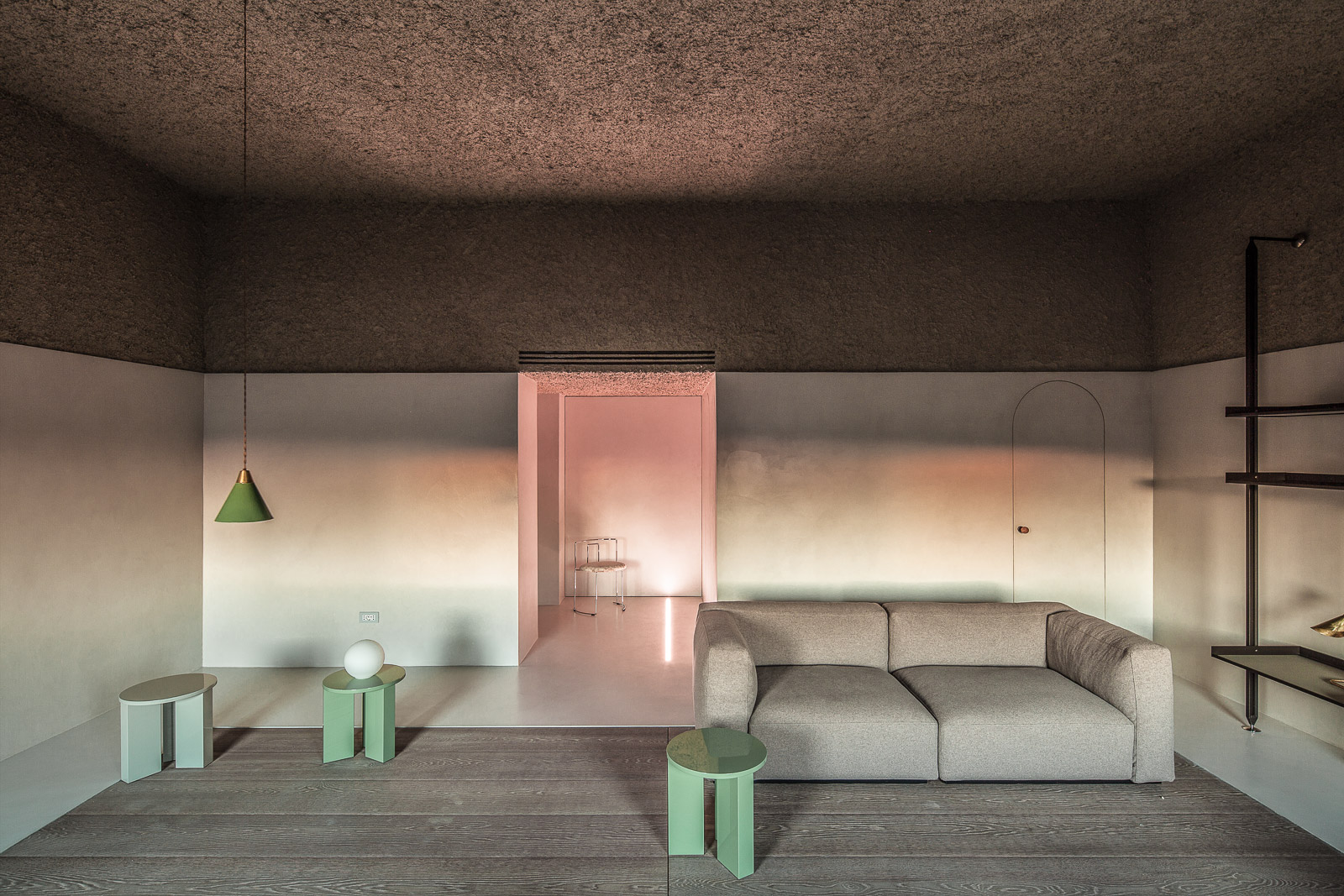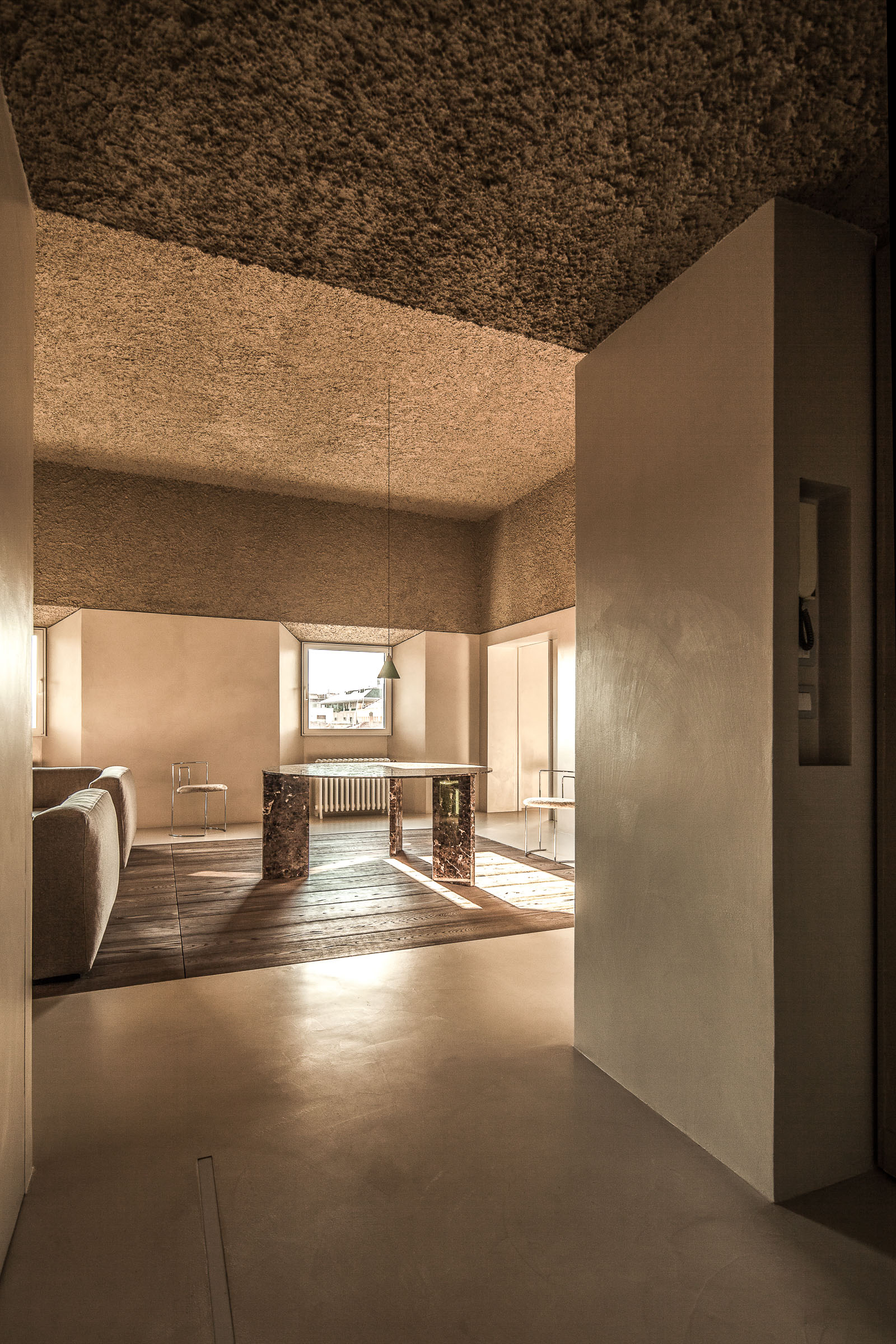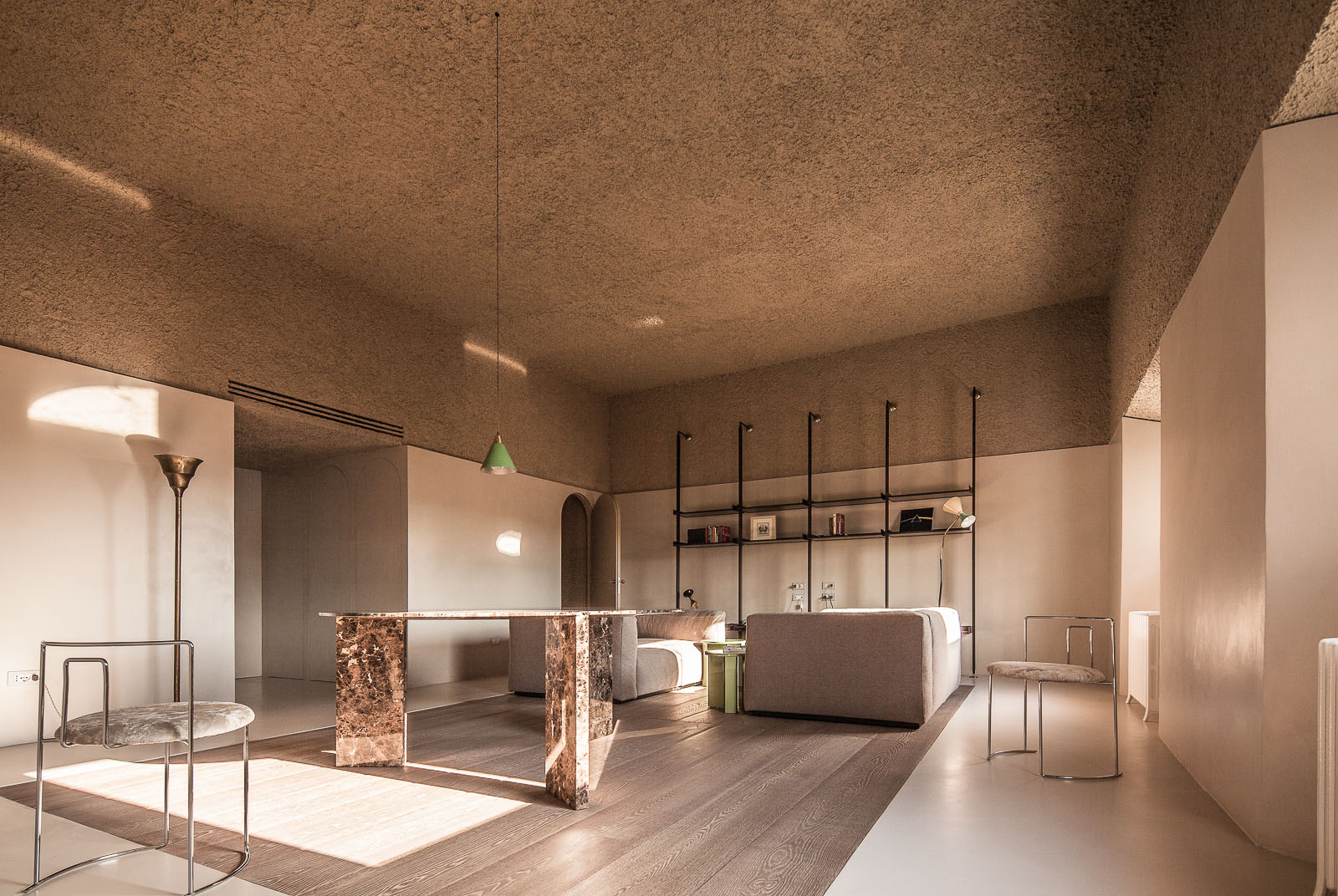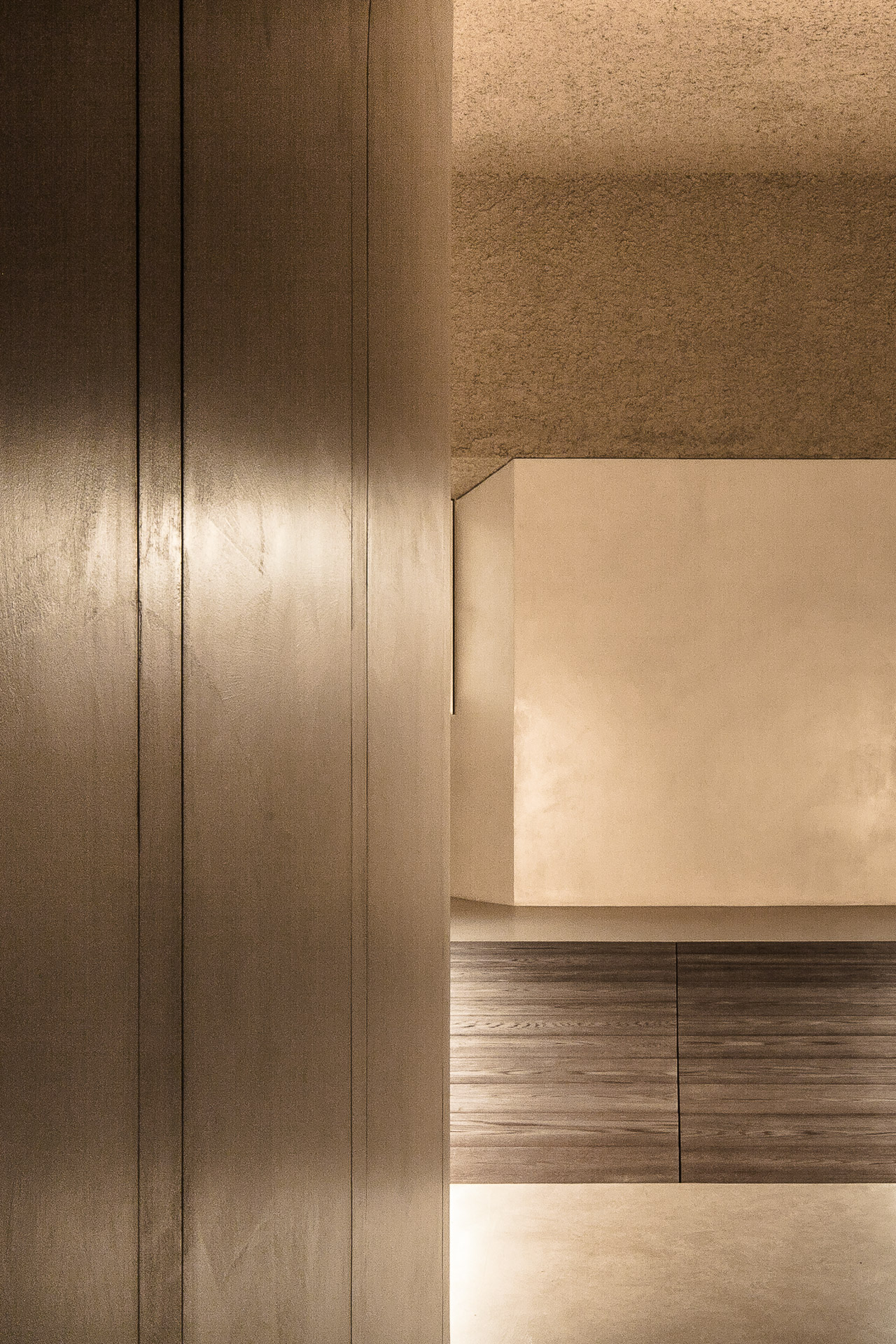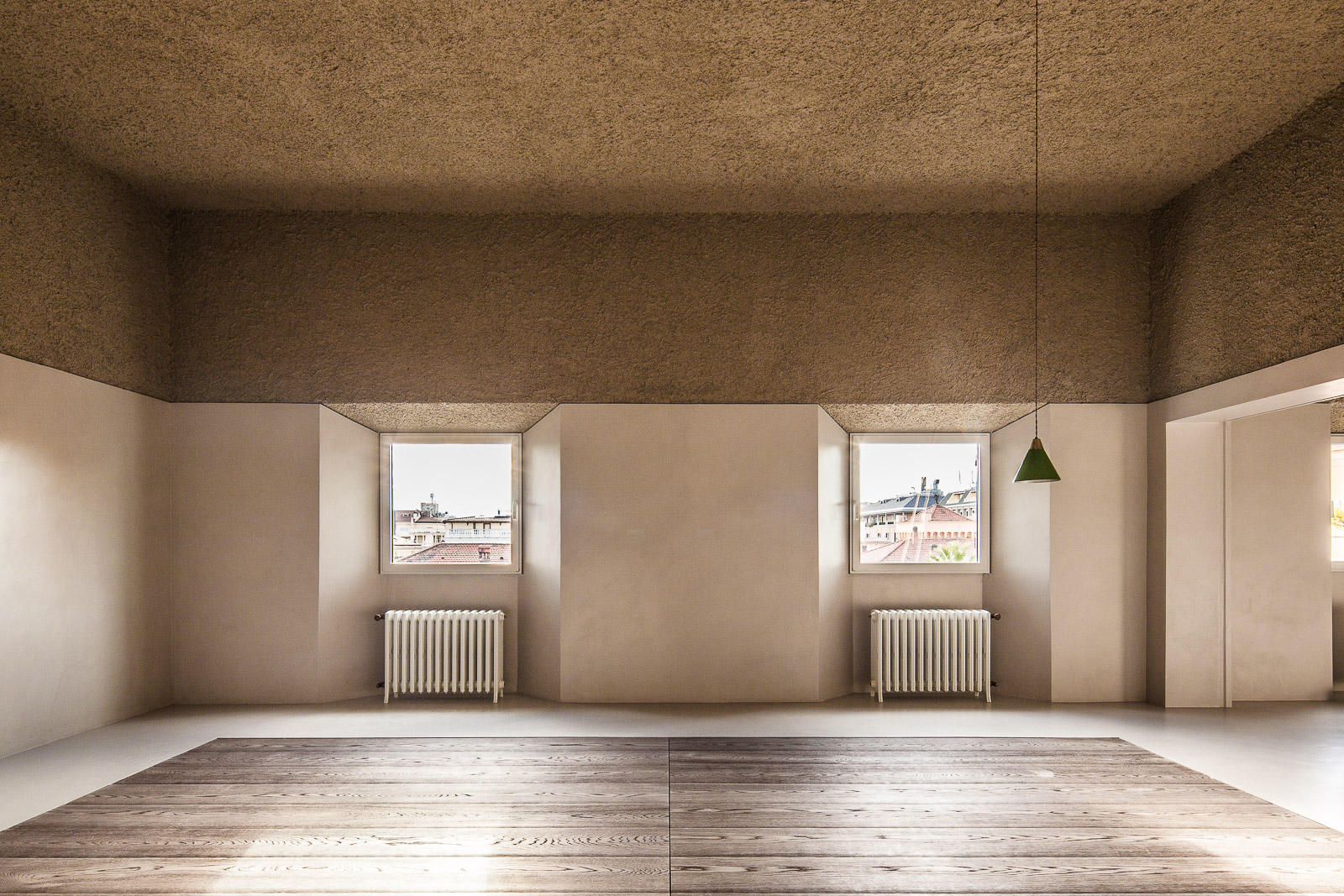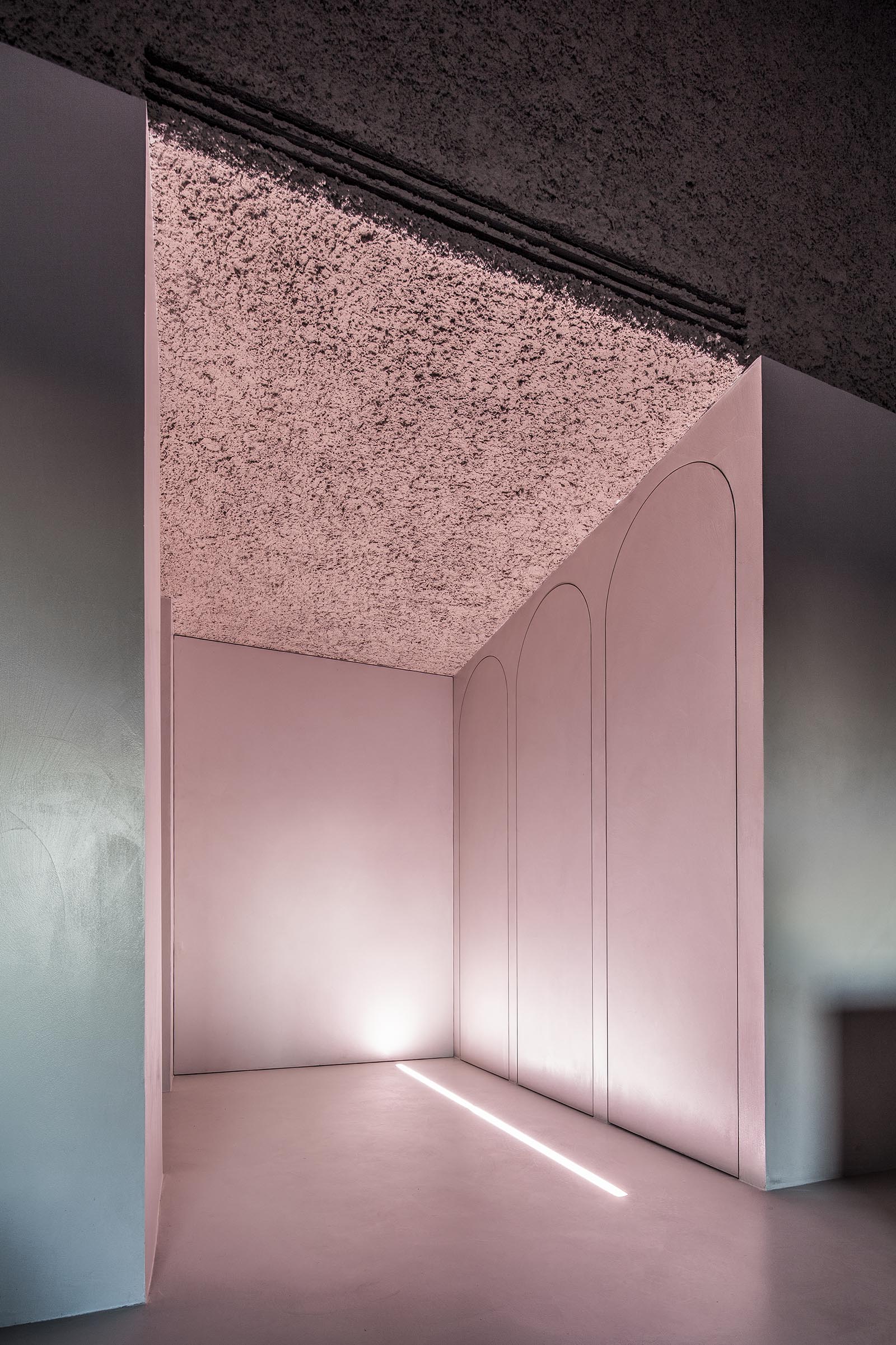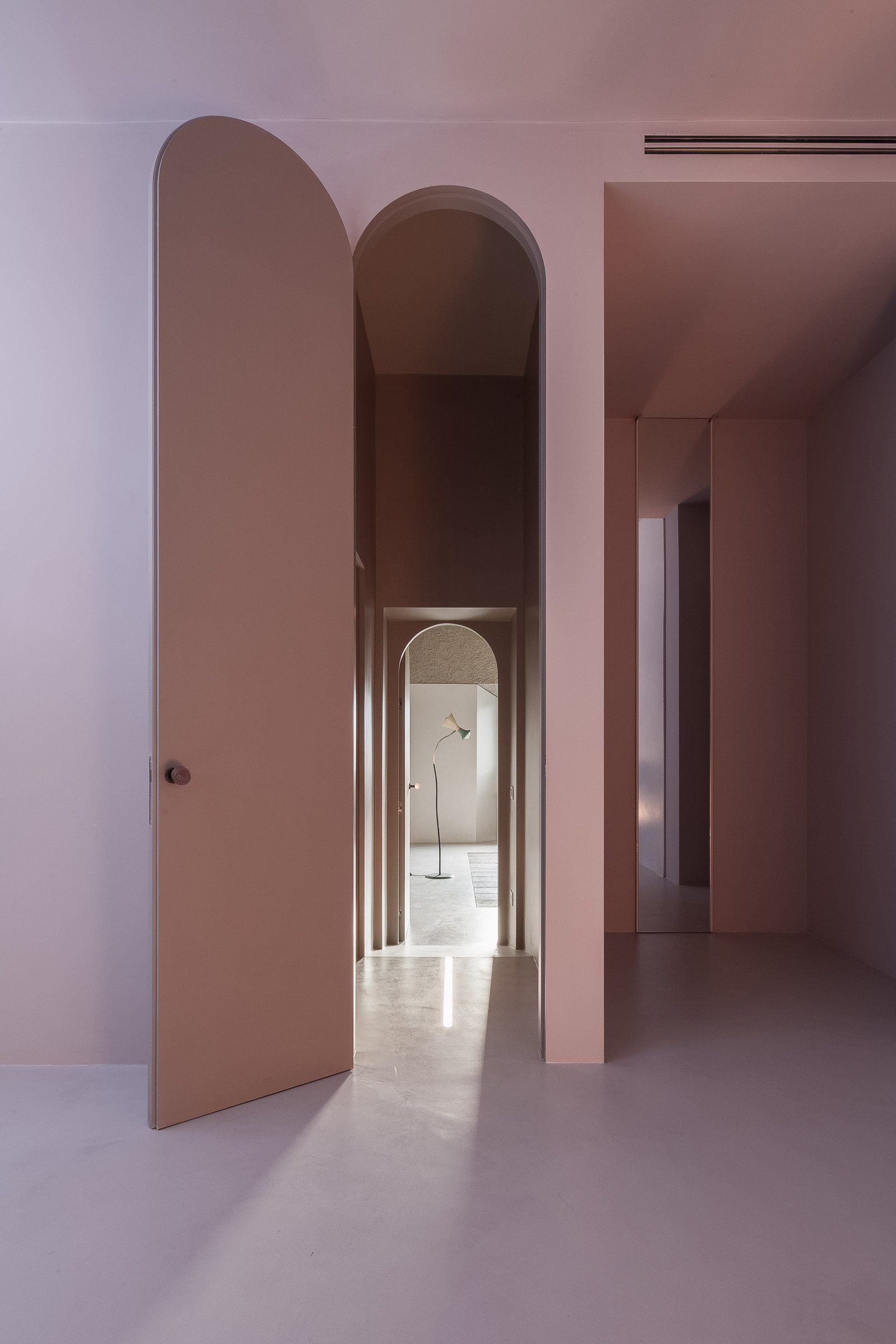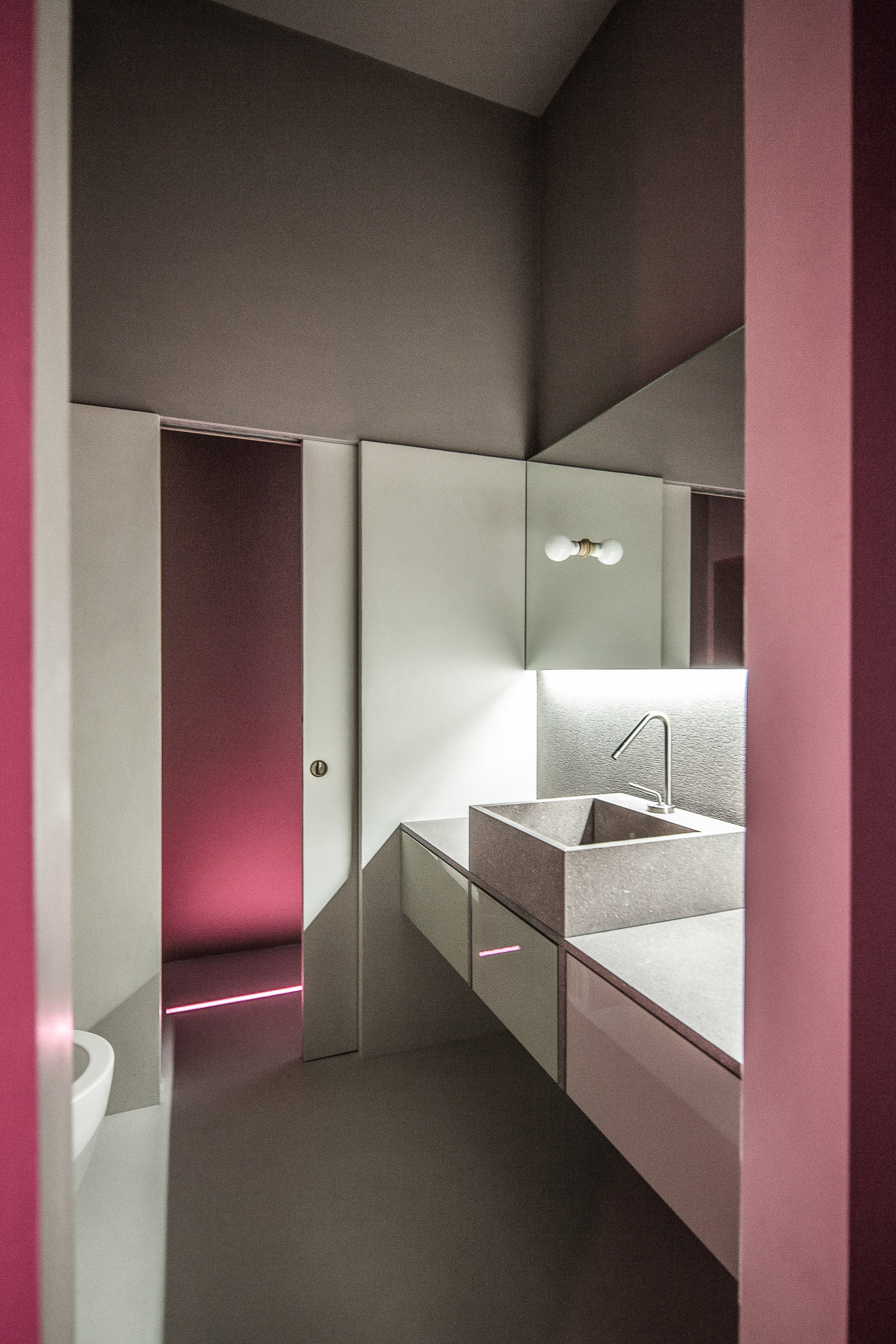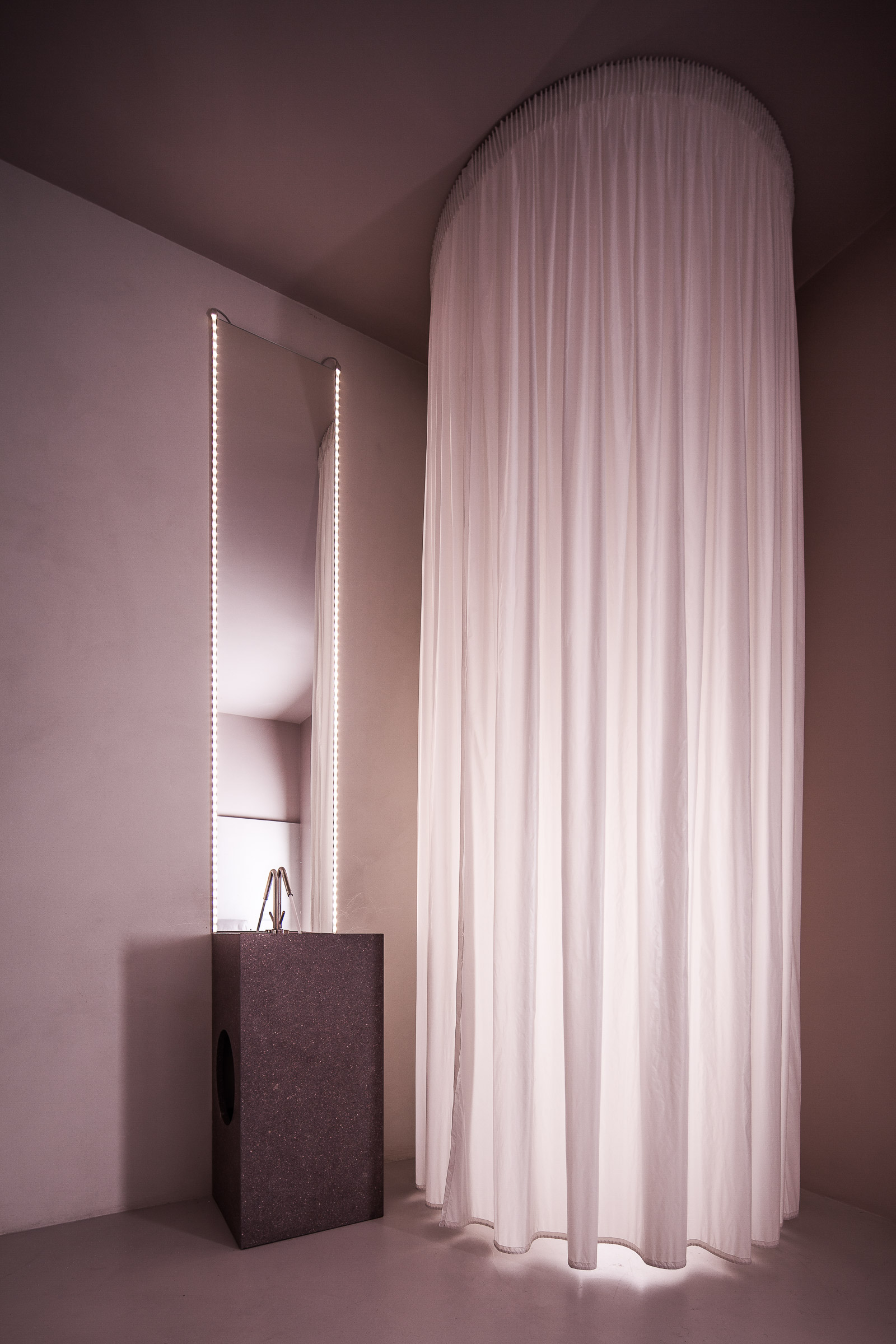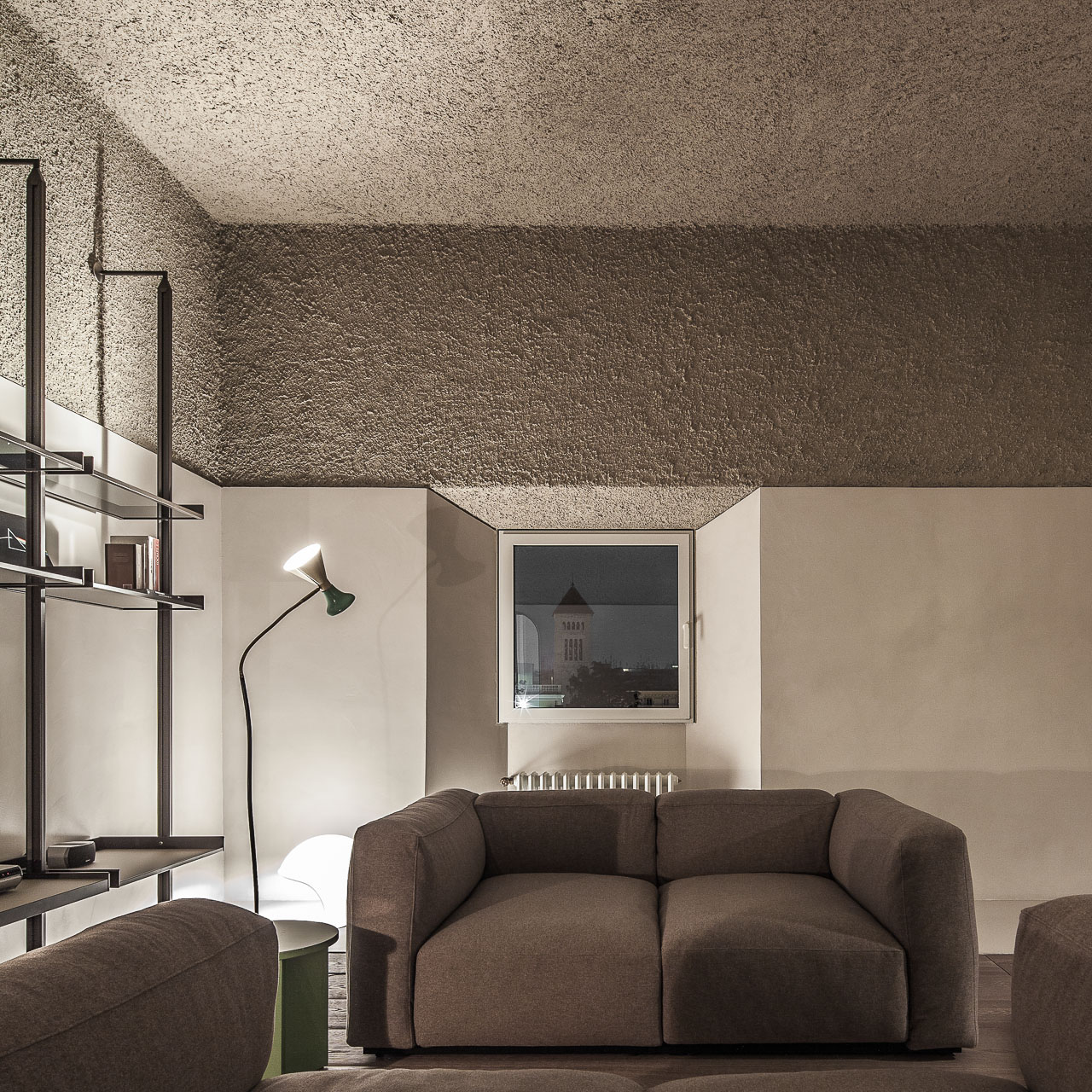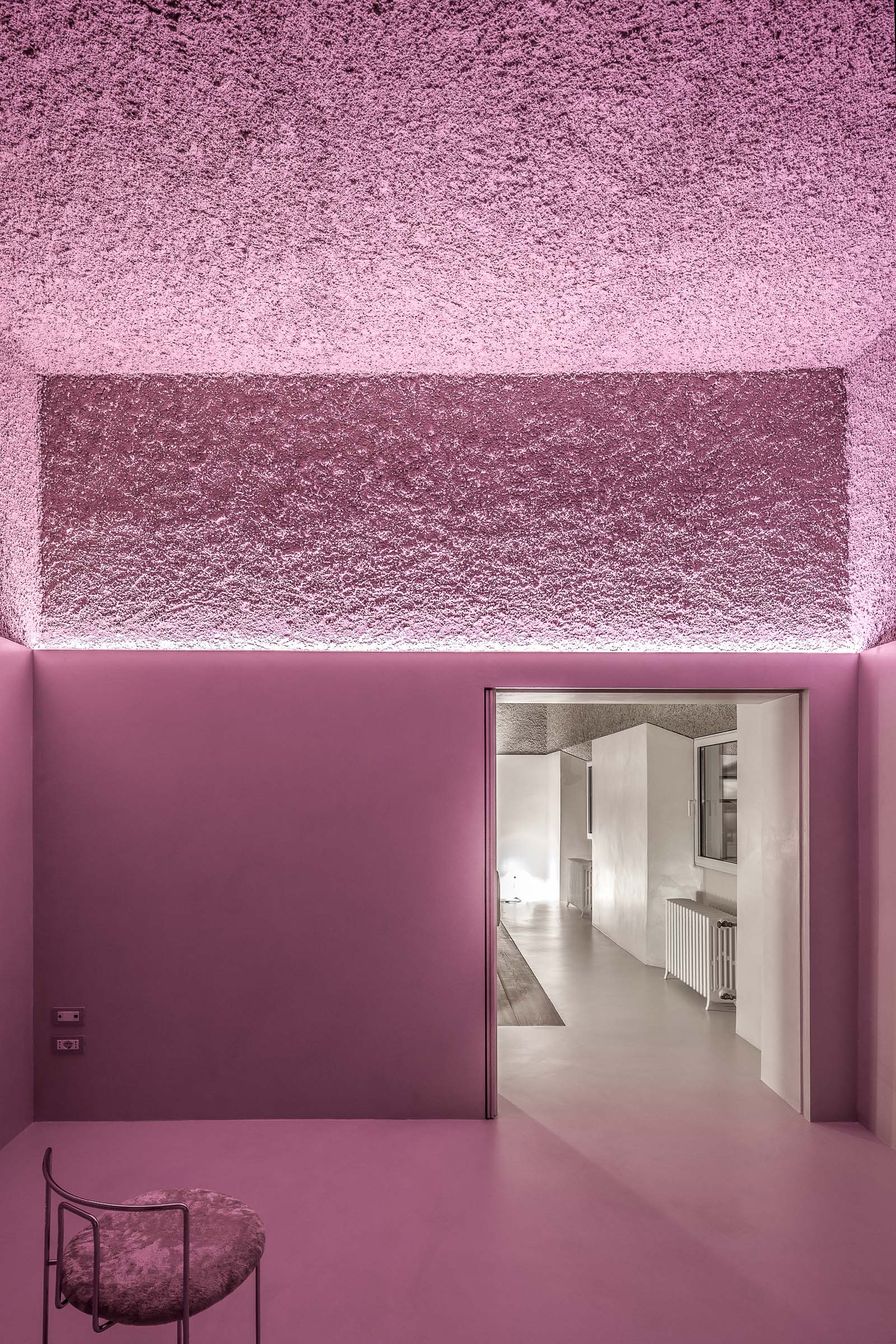Kerstin Schultz, Hedwig Wiedemann-Tokarz, and Eva Maria Herrmann
The alienation of the material using the devices of color and texture surprises and, at the same time, generates a feeling of security.
Thinking Color in Space: Positions, Projects, Potentials, Birkhäuser, Berlin/Boston, Dec. 2018, p. 342. (de, en)
Annie Carroll
His understanding of space and balance has resulted in some of the most influential interiors of recent times.
atelierlumira.com, Sydney, 22 Jan. 2018. (en)
Monica Khemsurov
Cardillo is the guy behind one of our favorite interiors projects in recent memory, the House of Dust.
sightunseen.com, New York, 22 April 2017. (en)
Eve
In 2012, at the request of Massimiliano Beffa, his former partner, Antonino Cardillo revisited his Rome apartment and designed the House of Dust, a jewel of contemporary architecture that captured the attention of his entire profession, as evidenced by the many articles published on his work by Dezeen, Architects’ Journal Specification and even The Journal of Architecture.
promostyl.com, Paris, 24 Nov. 2017. (en)
Sophia Klinkenberg
Cardillo links shadows and mysteries to the creation of a sense of eroticism.
Being in shape / shaping environments, thesis, Koninklijke Academie van Beeldende Kunsten, The Hague, May 2015. (en)
Beppe Finessi
A new author who has carved out a place entirely his own in the history of this discipline within just a few years.
‘Stanze. Altre Filosofie dell’Abitare’ [exhibition], XXI Triennale, Milan, April 2016. (en, it)
Francesca Gottardo
A dimension seemingly out of time, which here seems to have stopped or never spent, suspended, immobile.
Abitare la Terra, no. 37, dir. Paolo Portoghesi, Rome, March 2015, p. 50. (en, it)
Francesca Taroni
Antonino Cardillo focusses on the potential of the ceiling.
Living, no. 1/2, Corriere della Sera, Milan, Feb. 2015, p. 13. (it)
Nacho Alegre
It instantly brought back memories of the best postmodern, neoclassical architecture that I was revisiting at the time—Bofill, Moneo, Tusquets—but with a more personal and very contemporary view.
Room: Inside Contemporary Interiors, Phaidon, London, Oct. 2014, p. 64. (en, it)
Haim Capone
Cardillo breaks boundaries, shatters familiar patterns and infuses his works with a unique individual character with a new language based on classical principles. However, it is quite clear that this new aesthetic language is not easy to digest and understand, and is not intended for everyone, it is very far from the mainstream, deep, different and different, in the way of groundbreaking works.
Trend, no. 141, Tel Aviv, March 2014, p. 180. (he)
Jenny Dalton
It is purposely reminiscent of all kinds of subliminal historical references, in particular the vault of very early architecture.
How to Spend It, Financial Times, London, March 2014, p. 71. (en)
Christine Schroder
The architect has managed to create a flat with solid materials […] that processes the history of architecture and the very particular history of the city of Rome in its own unique way.
AIT Magazin, No. 3/14, Leinfelden‑Echterdingen, March 2014, pp. 120‑125. (de)
Ana Araujo
In connecting architecture to the realm of the haptic, both on a more tactile, micro scale (ceiling) and on a more visual, macro scale (arches), Cardillo’s architecture promotes the sensorial mobilisation envisioned by Benjamin as a potential force for social/political transformation. It also responds to Rilke’s call for an intensification of the senses as the only possible antidote to human suffering and violence. It is a hopeful piece that suggests that architecture still holds the power to awaken our senses and emotions for a deeper, more intimate and fulfilling engagement with the world.
The Journal of Architecture, vol. 19, no. 1, RIBA, London, Jan. 2014, p. 15. (en)
Spencer Peterson
Doing a house up entirely in earth tones would be pretty ill-advised 99 percent of the time, but in the right hands the effect can be nothing short of arresting.
curbed.com, New York, 20 Dec. 2013. (en)
Riya Patel
In place of abundant natural light and designer furnishings are gloomy cavernous spaces characterized by a grainy ceiling of pozzolanic plaster, tinted the colour of dust.
Frame, no. 95, Amsterdam, Nov. 2013, p. 58. (en)
Sandra Bermudez
The Sicilian architect uses colour to illustrate the path of humanity: “from the grotto to the rose” as the maximum expression of the sublime.
Folio, vol. 4, Mexico City, Oct. 2013, p. 42. (es)
Felix Mara
An apartment interior in Rome’s Via Veneto, glamorised by Fellini’s La Dolce Vita, the House of Dust serves as an ideal springboard for fanciful lighting effects and architectural narrative.
Architects’ Journal Specification, London, Oct. 2013, pp. 4, 50‑55, cover. (en)
Dana Tomic Hughes
This is a courageous project with a fresh aesthetic and a unique vision. It’s the kind of interior that creates new trends, memes and movements.
yellowtrace.com.au, Sydney, 27 Sept. 2013. (en)
Mitchell Oakley Smith
As one of the world’s most exciting architects, Antonino Cardillo draws on classical and ancient architectural forms to create spaces that feel entirely new.
mroakleysmith.com, Sydney, Aug. 2013. (en)
Tim Berge
For the architect, architecture becomes interesting where it “becomes invisible or hides something” and exists on the border “to the dream”—with his House of Dust he has precisely realised this into reality.
designlines.de, BauNetz, Berlin, 13 Aug. 2013. (de, en, it)
Amy Frearson
Italian architect Antonino Cardillo used roughly textured plaster to create lumpy brown surfaces across the upper walls and ceilings of this apartment in Rome.
dezeen.com, London, 5 Aug. 2013. (en)
Paolo Maria Noseda
A side entrance reveals a hall that, like a Greek mask suddenly worn by the visitor, projects and draws attention onto two tapered windows: a pair of eyes on the world.
Casamica, no. 3/13, Corriere della Sera, Milan, June 2013, p. 77. (en, it)
